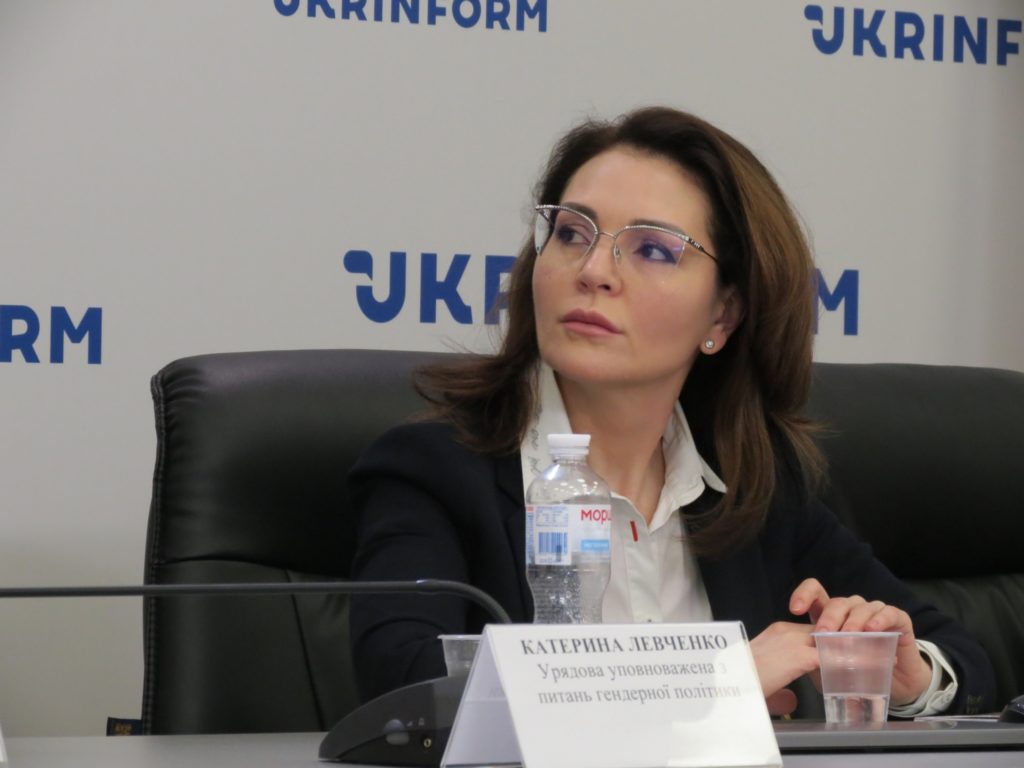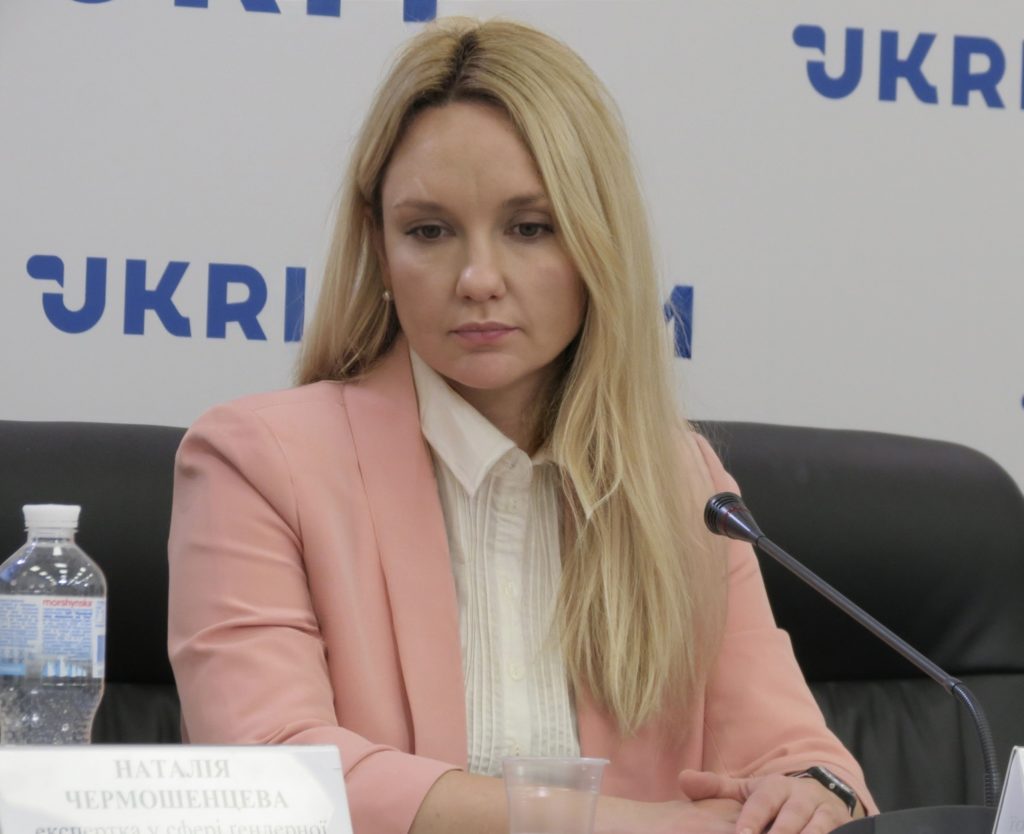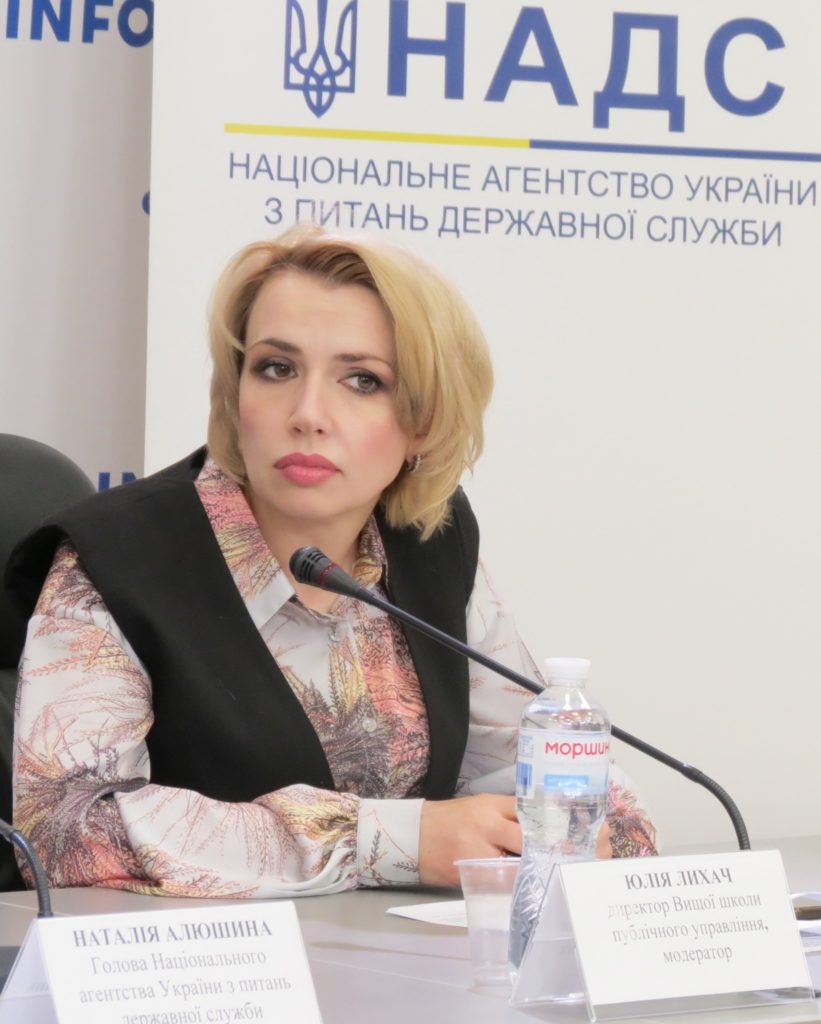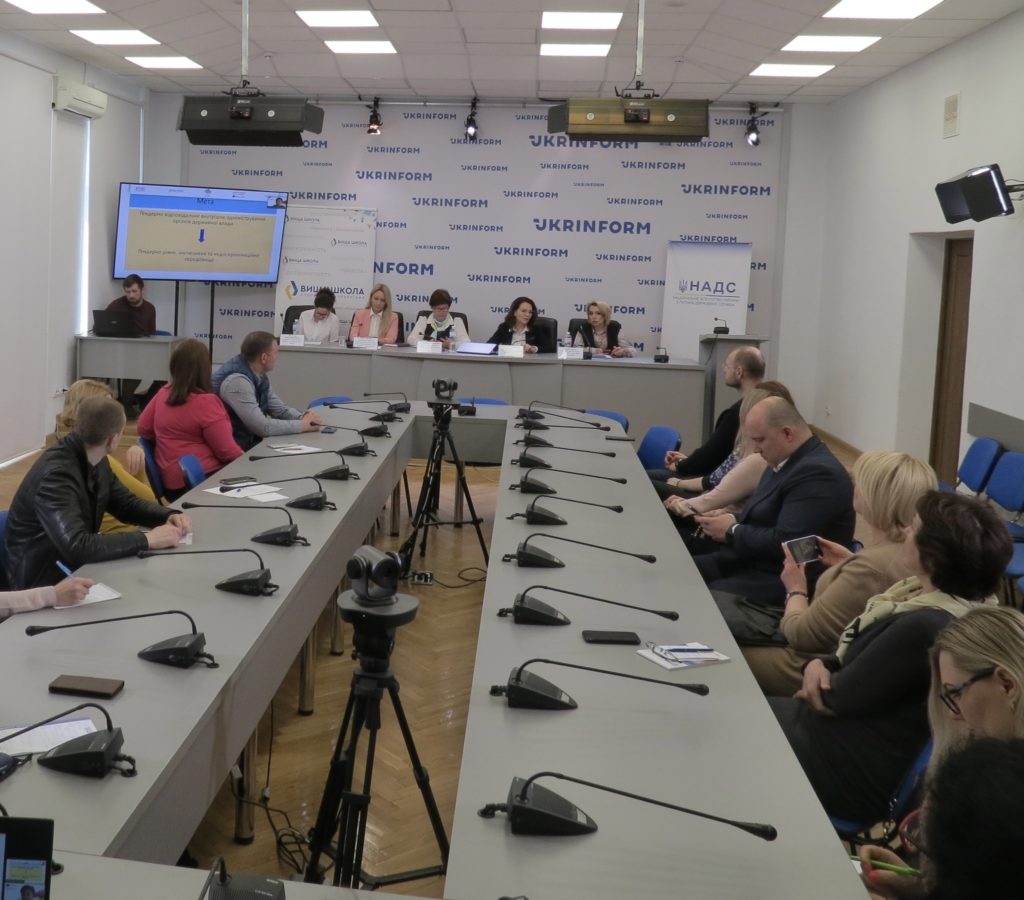
The NAUCS, together with the High School of PublicGovernance , in cooperation with the Government Commissioner for Gender Policy, develops training programmes on non-discrimination and gender equality. In 2022, more than 17,500 public servants and 1,912 local government officials were trained under these programmes.
This was stated by Nataliia Aliushyna, Head of the NAUCS, during the presentation of the results of the gender survey in the public sector “Ensuring Equal Rights and Opportunities for Women and Men in the Public Service of Ukraine”.
The results of the gender survey were presented by NAUCS Head Nataliia Aliushyna, Government Commissioner for Gender Policy Kateryna Levchenko, and Project Manager of the European Union for Gender Equality: Reform Assistance Service” Oksana Kyselova, Director of the High School of Public Governance Yulia Lykhach, PhD in History, expert of the Project “European Union for Gender Equality: Reform Assistance Service” Nataliia Chermoshentseva, and Anna Ishchenko, Director of the Educational and Research Centre for Applied Sociology of the Educational and Research Centre for Applied Sociology “Socioplus” of the National Technical University of Ukraine “Igor Sikorsky Kyiv Polytechnic Institute”.
The research was conducted in two waves. The first one started two days before the war. However, even during this difficult period, we managed to interview more than 9,000 people. The first wave allowed us to take into account certain shortcomings and suggestions and improve the methodology. From 23 August to 25 September, the field stage of the second wave was conducted. Participation in this survey was voluntary. In total, more than 21,000 public servants from 79 central executive bodies took part.
According to Kateryna Levchenko, gender policy is an integral part of public administration in any area. “It is cross-cutting and integrative. This means that we cannot say that only one CEB or one entity is responsible for implementing such a policy. We are all responsible for this,” she emphasised.
According to Oksana Kulinska, project manager of the European Union for Gender Equality: Reform Assistance Service” project manager Oksana Kyselova, Ukraine needs to integrate a gender approach into its decision-making process. “Balanced participation implies the representation of women in accordance with the percentage of women working in public authorities and local self-government bodies. Equal participation also implies that employees can freely express their opinions, defend their position and not be afraid of being punished for it in one way or another,” she said.
The participants of the event issued recommendations for amending documents, policies and procedures to foster a culture of equal rights and opportunities and to prevent all forms of discrimination in the public service.
“We looked at how the policy of equal rights and opportunities is or is not being implemented within institutions. That is, we did not consider how the authorities implement this policy externally. We focused on how it happens internally,” said Natalia Chermoshentseva, an expert in gender equality, non-discrimination and reforms.
According to her, the majority of respondents stay late at work or take work home and work after the end of the working day. 16.2 % of public servants indicated the need for psychological support. Men were much more likely to refuse psychological support (68.6%) than women (50.7%).
62.7% of the survey participants noted that they do not have the opportunity to work according to individually determined forms of work. Men reported having more such opportunities (the difference is 5.7%). When it comes to job interviews, 14.9% were asked about marital status. 11.2% were asked about having children, and 4.4% were asked about plans to have children. Women were asked more often about having children (12.3% of women and 8.5% of men) and about plans to have children (5.8% of women and 0.9% of men), and 1.8% of women said they were asked about being pregnant.







For reference: The gender audit of ministries and central executive authorities was carried out with the assistance of the National Agency of Ukraine on Civil Service, the Government Commissioner for Gender Policy and with the support of the project “European Union for Gender Equality: Reform Assistance Service”. The Educational and Research Centre for Applied Sociology “Socioplus” of the National Technical University of Ukraine “Igor Sikorsky Kyiv Polytechnic Institute” also joined the event.